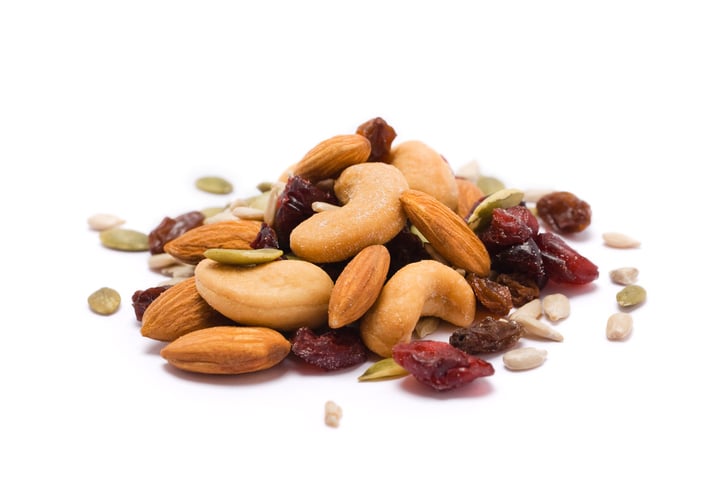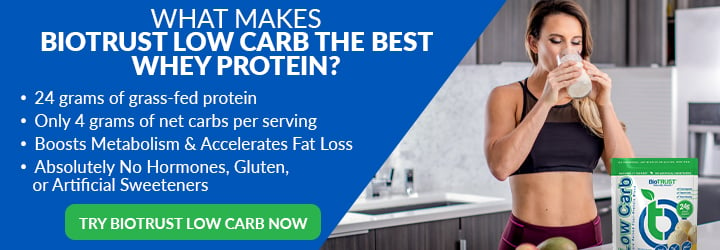3 Organic Foods You Should NEVER Eat

The organic industry is hot: it’s the fastest growing sector of the supermarket. From 1997 to 2013, organic food sales in the United States increased nearly 800%, from $3.6 billion to $32.3 billion. And organic food sales topped $47 billion in the U.S. in 2016. What’s more, folks are willing to pay 30 – 60% more for organic food items.
But what does it truly mean to be organic?
While most people recognize organic foods are those produced using methods that do not involve modern synthetic inputs (e.g., pesticides and chemical fertilizers), the U.S. Department of Agriculture’s National Organic Program sets forth strict guidelines for the agriculture of organic foods. For instance, the organic designation means that irradiation, sewage sludge, synthetic fertilizers, prohibited pesticides, and genetically modified organisms (GMOs) cannot be used in the production of crops.
Thus, organic food production offers many bonuses to both people and the environment, such as lowering human exposure to synthetic agents (e.g., pesticides, fertilizers, growth hormones), as well as promoting healthy soil, ecosystems, and water supplies. However, these organic standards have nothing to do with regulating a food product’s nutritional attributes.
The Skinny on Organic Foods
Yet consumers generally believe organic food is both safer and healthier than conventional food. Researchers from Ghent University in Belgium polled over 500 adult consumers of both organic and conventional produce, and the subjects were asked to complete a survey concerning their perception of the nutritional and toxicological value of organic relative to conventional vegetables.
The researchers found “that organic vegetables are perceived as containing less contaminants and more nutrients, and as such, being healthier and safer compared to conventional vegetables. However, not enough evidence is currently available in the literature to support or refute such a perception, indicating a certain mismatch between consumer perception and scientific evidence.”
Unfortunately, there seems to be a nutritional “halo” over all foods labeled “organic,” a word that makes the vast majority of folks think a food is intrinsically healthier.
What’s most concerning is that this perception seems to extend well beyond vegetables, fruits, meat, poultry, eggs, dairy, and other unprocessed foods.
In fact, in a study recently published in the journal Judgment and Decision Making, researchers from the University of Michigan found that people make inferences about the nutritional qualities of foods based simply on the labeling of said food as “organic.”
Interestingly, the University of Michigan researchers found that the organic labeling can transcend to physical activity patterns as well. When the researchers evaluated folks with weight-loss goals, they found that skipping out on exercise was deemed more acceptable when a person opts for an organic dessert rather than a conventional one. In essence, folks believe that eating organics is a suitable substitute for other health and weight-loss promoting behaviors, such as physical activity.
The researchers were so stricken by the results of their studies that they titled their paper “The ‘organic’ path to obesity?”
“Organic is on so many food packages of highly processed foods,” says Andrea Giancoli, M.P.H., R.D., dietitian and spokesperson for the Academy of Nutrition and Dietetics. “I find that people see ‘organic’ on a food label, and it doesn’t seem to matter what the actual food is; they think it is healthful. Organic means that the food is farmed in a different way, which is great for the planet, but that doesn’t mean it’s always better for you.”
You see, the designation “organic” refers to how a food or the ingredients in a food are farmed. It does not tell you, however, about the nutritional profile of the foods. As you’ll see, there are many organic products that line supermarket shelves that are (appallingly) comparable to their conventional counterparts in terms of calories, fat, sugar, and sodium.
In fact, there are just as many heavily processed organic foods, rife with refined flours, added sugars, inflammatory oils, and salt. Simply put, it’s important to make your organic food choices count and to not use the organic labeling as an excuse to make poor food choices.
Ultimately, organic junk food is still junk food, and with that in mind, we share with you 3 Organic Foods to Never Eat.
3 Organic Foods to NEVER Eat!

Trail Mix
Pardon the pun, but most store-bought trail mixes—yep, even the organic, “super-healthy” versions—can take a hike! In addition to nuts (mostly, if not all, peanuts), the vast majority of trail mix contains dried fruit (frequently covered in “yogurt”) and typically some type of chocolate (but not the healthy, cocoa-rich kind), which means added sugar and often plenty of it.
For instance, it’s not uncommon for a mere half cup of trail mix to contain upwards of 30 grams of sugar. And yes, that includes organic trail mix, and when it comes to your body, organic sugar is still sugar.
What’s more, trail mix is a very calorie-dense snack due to the concentrated sources of fat (e.g., nuts) and sugar (e.g., dried fruit, chocolate). For instance, that same half cup of trail mix packs over 300 calories, which adds up to more fat, sugar, and calories than ice cream. What’s more, most people have trouble controlling portion sizes when it comes to this “healthy snack.”

Sodas, Teas and Juices
Organic sodas, teas, and juices are typically not any better for your waistline than their conventional counterparts competing for the same shelf space.
In fact, a can of one popular brand of organic soda packs more sugar (43 grams) and calories (170) than one of the leading conventional brands, which contains 41 grams of sugar and 150 calories. Granted, the organic soda is void of high fructose corn syrup and artificial flavors and colors; however, that’s still a lot of sugar—nearly 11 teaspoons worth—that will do very little for your health and body composition goals.
Bottled organic teas and juices can also be sneaky sources of sugar. For instance, one popular brand of organic tea contains 16 grams of added sugar per bottle, which is equivalent to 4 teaspoons.
Likewise, bottled fruit juices are much like their conventional counterparts in terms of sugar content and lack of fiber (unlike whole fruits). For instance, a single 8-ounce glass of one popular brand of apple juice contains 30 grams of sugar (the equivalent of 7 ½ teaspoons), slightly more than its conventional counterpart (with 28 grams of sugar per cup).
Granola and Granola Bars
While granola, which at its very base is nuts and oats, can be quite a healthy and tasty treat, most commercial preparations (including organic versions) are rife with refined grains, sugary ingredients, and inflammatory oils.
What’s more, granola can be a very calorie-dense option, and the serving size is often much smaller than what most folks consume.
For instance, one popular organic brand contains 5 different sugary ingredients contributing 14 grams of sugar per half cup serving. On top of that, it also contains sunflower oil, which is rich in inflammatory omega-6 fatty acids.
As mentioned, the typical serving size for granola is half a cup, and if you have trouble stopping, it’s probably because sugar and fat are usually the second and third ingredients on the list. These two highly palatable energy-rich ingredients are common amongst “binge foods,” and food manufacturers seem to have these addictive combinations down to a science. With regard to granola, most people are likely to consume double or triple the recommended serving size, which will only compound the calorie density and added sugar issues.
Although commonly thought of as a healthy snack, granola bars are a microcosm of granola. Granola bars are nearly always packed with processed ingredients, including unhealthy oils and various sources of refined sugar. Due to the high glycemic carbohydrates and lack of protein and fiber, these will often leave you reaching for another high-carb snack in no time at all.
Make Your Organics Count
Remember, the term organic refers to how a food is grown. It does not, however, tell you about a food’s nutritional properties. Processed organic food is still processed food, and just because a food is labeled organic does not make it healthy. Likewise, choosing organic is not a license to eat more of a food or move less.
If you are an organic consumer, the best way to invest your grocery dollars is on the unprocessed foods that matter most: fruits, vegetables, nuts, seeds, legumes, true whole grains, nuts, meat, poultry, eggs, and dairy.








